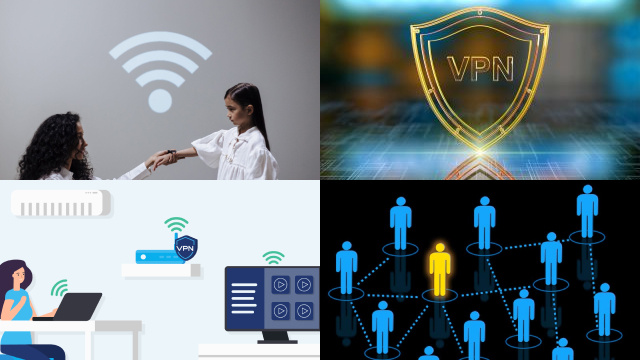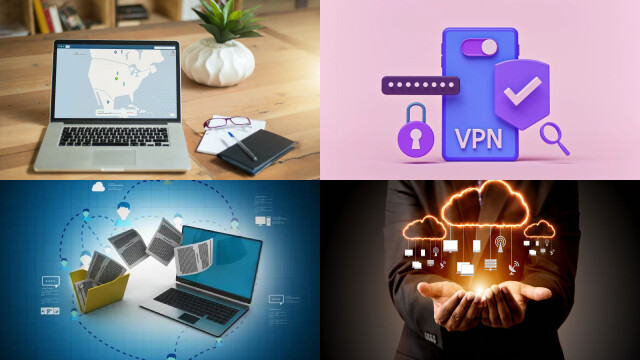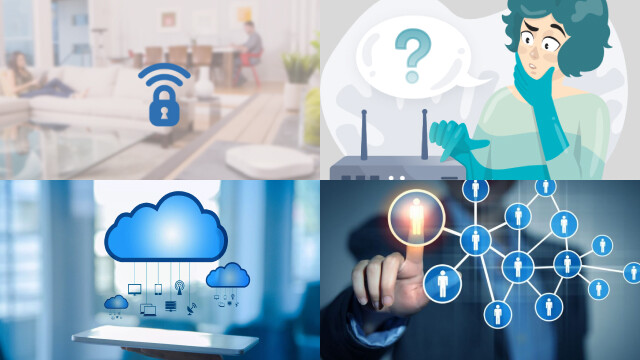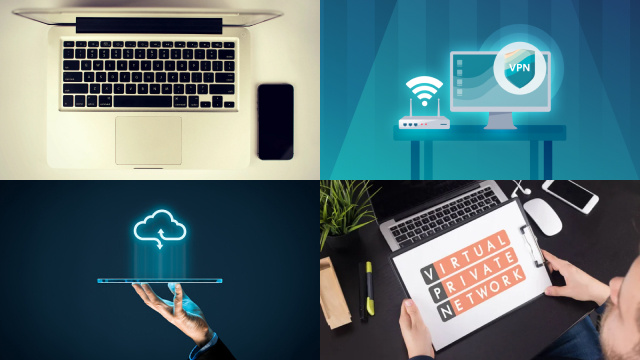Why You Need a VPN at Home: Protect Your Privacy and Security
In today’s digital age, online privacy and security have become increasingly important. One effective way to protect your privacy and enhance your online security is by using a VPN at home.
A VPN encrypts your internet traffic, making it more difficult for third parties to intercept and view your online activity. This means that your online communications, browsing history, and personal information remain private and secure.
Moreover, a VPN can help protect you from cyber threats such as hacking, phishing, and malware attacks. By masking your IP address and location, a VPN can make it more difficult for cybercriminals to target your device and steal your personal data.

In addition to providing privacy and security, a VPN can also allow you to bypass geographical restrictions and access content that may be blocked in your region.
Overall, a VPN is an essential tool for protecting your online privacy and security. By using a VPN at home, you can browse the internet with peace of mind, knowing that your online activity is secure and private.
Choosing the Right VPN for Your Home Network: Factors to Consider
Choosing the right VPN for your home network is crucial to ensure that you have the best possible online privacy and security. Here are some factors to consider when selecting a VPN for your home network:
- Security and privacy features: Look for a VPN that offers robust encryption protocols and a no-logs policy to ensure that your online activity is private and secure.
- Server locations: Choose a VPN with servers in locations that are important to you, such as the country or region where you want to access content.
- Connection speed: Check that the VPN provides fast and reliable connections to ensure that your online activities are not slowed down.
- Compatibility: Make sure that the VPN is compatible with all your devices and operating systems.
- User-friendly interface: Look for a VPN that is easy to set up and use, even if you are not tech-savvy.
- Customer support: Choose a VPN provider that offers good customer support to help you troubleshoot any issues that you may encounter.
By considering these factors, you can choose a VPN that best suits your needs and provides the privacy and security you require for your home network.
Setting Up Your VPN Router: A Step-by-Step Guide
Setting up a VPN router is an excellent way to protect all devices on your home network, including gaming consoles, smart TVs, and other internet-enabled devices. Here is a step-by-step guide to setting up your VPN router:
- Choose a VPN router: Purchase a router that is compatible with your VPN provider and has sufficient processing power to handle VPN encryption.
- Install the router: Follow the manufacturer’s instructions to connect and set up your router.
- Access the router settings: Log in to your router’s administration page and locate the VPN settings.
- Configure the VPN settings: Enter the VPN provider’s server information, including the server address, username, and password.
- Test the connection: Save the settings and test the connection to ensure that it is working correctly.
- Connect your devices: Connect all your devices to the router, and they will automatically use the VPN connection.

By setting up a VPN router, you can protect all devices on your home network with a single VPN connection. This ensures that all your online activity remains private and secure, regardless of the device you are using.
Configuring Your VPN Software: Tips and Tricks
Configuring your VPN software can help you maximize your online privacy and security. Here are some tips and tricks to keep in mind:
- Choose the right encryption protocol: Select the most secure encryption protocol available on your VPN software to ensure that your online activity is protected.
- Enable the kill switch: The kill switch is an essential feature that automatically cuts off internet access if the VPN connection drops. This prevents your online activity from being exposed to third parties.
- Select server locations: Choose server locations that are geographically close to you to ensure that you get the best possible connection speed.
- Optimize your VPN settings: Adjust your VPN settings to optimize your online experience. This may include adjusting the protocol, port settings, or enabling split tunneling.
- Keep your VPN software up to date: Make sure that you regularly update your VPN software to ensure that it is running smoothly and protecting you against the latest threats.
By following these tips and tricks, you can configure your VPN software to provide the best possible protection for your online activities.
Connecting to Your Home VPN: How to Access Your Network from Anywhere
A home VPN allows you to securely access your home network from anywhere in the world. Here is a step-by-step guide on how to connect to your home VPN:
- Configure your home VPN: Set up your VPN server using a compatible router or VPN software.
- Create a user account: Create a user account with a unique username and password to access your home network remotely.
- Configure your remote device: Install and configure your VPN client software on your remote device, such as your laptop or smartphone.
- Connect to your home network: Launch the VPN client software and enter your home network’s server address, username, and password.
- Access your network: Once connected, you can access your home network’s resources, such as shared files, printers, and other devices, just as if you were physically connected to your home network.

By connecting to your home VPN, you can securely access your home network from anywhere, ensuring that your data is always protected, whether you are at home or on the go.
Troubleshooting Common VPN Issues: Tips and Tricks
Using a VPN can sometimes come with its own set of issues that can cause frustration, but with the right troubleshooting tips and tricks, you can quickly resolve common VPN issues. Here are some of the most common issues and how to fix them:
- Connection drops: Check your internet connection, restart your VPN client software, or try connecting to a different server.
- Slow connection speed: Check your internet speed, try connecting to a different server, or change your encryption protocol.
- Authentication errors: Verify your login credentials and check for any firewall settings that may be blocking your VPN connection.
- DNS leaks: Configure your VPN client software to use a secure DNS server or use a third-party DNS resolver.
- Compatibility issues: Ensure that your VPN client software is compatible with your device’s operating system and that your router supports VPN connections.
By following these troubleshooting tips and tricks, you can quickly resolve common VPN issues and enjoy the benefits of a secure and private online experience.
Securing Your Home Network: Best Practices for VPN Users
Securing your home network is essential, especially if you are using a VPN. Here are some best practices for VPN users to keep their home networks secure:
- Update your router firmware: Make sure that your router’s firmware is up to date to ensure that you have the latest security patches and updates.
- Use strong passwords: Create strong and unique passwords for your router, VPN, and all other devices on your network.
- Enable two-factor authentication: Adding an extra layer of security with two-factor authentication can prevent unauthorized access to your network.
- Use antivirus software: Install antivirus software on all your devices to detect and prevent malware and viruses from entering your network.
- Disable remote access: Unless you need it, disable remote access to your router to prevent unauthorized access.
- Enable a firewall: Most routers come with a built-in firewall that can provide an additional layer of security for your network.
By following these best practices, VPN users can ensure that their home networks are secure, and their online activities are protected.
Frequently Asked Questions about Setting Up a VPN at Home
Setting up a VPN at home can seem daunting, but it doesn’t have to be. Here are some frequently asked questions and their answers to help you get started:
- What is a VPN and why do I need it at home?
A VPN (Virtual Private Network) creates a secure connection between your device and the internet. By using a VPN at home, you can protect your online privacy and security, access geo-restricted content, and secure your home network.
- Can I set up a VPN on my existing router?
Yes, if your router supports VPN configuration, you can set up a VPN on your existing router. However, if your router does not support VPN configuration, you can purchase a VPN router or install VPN software on individual devices.
- Which VPN protocol should I use?
There are several VPN protocols available, including L2TP/IPsec, and PPTP.
Can I use a free VPN for my home network?
While there are free VPN services available, they often have limitations, such as data caps, slower speeds, and limited server locations. Paid VPN services offer more robust features and better security, making them a better option for home networks.

By understanding these frequently asked questions, you can make an informed decision and set up a VPN at home with ease.